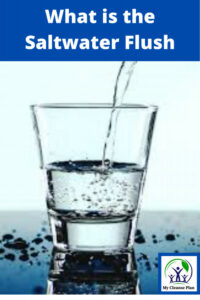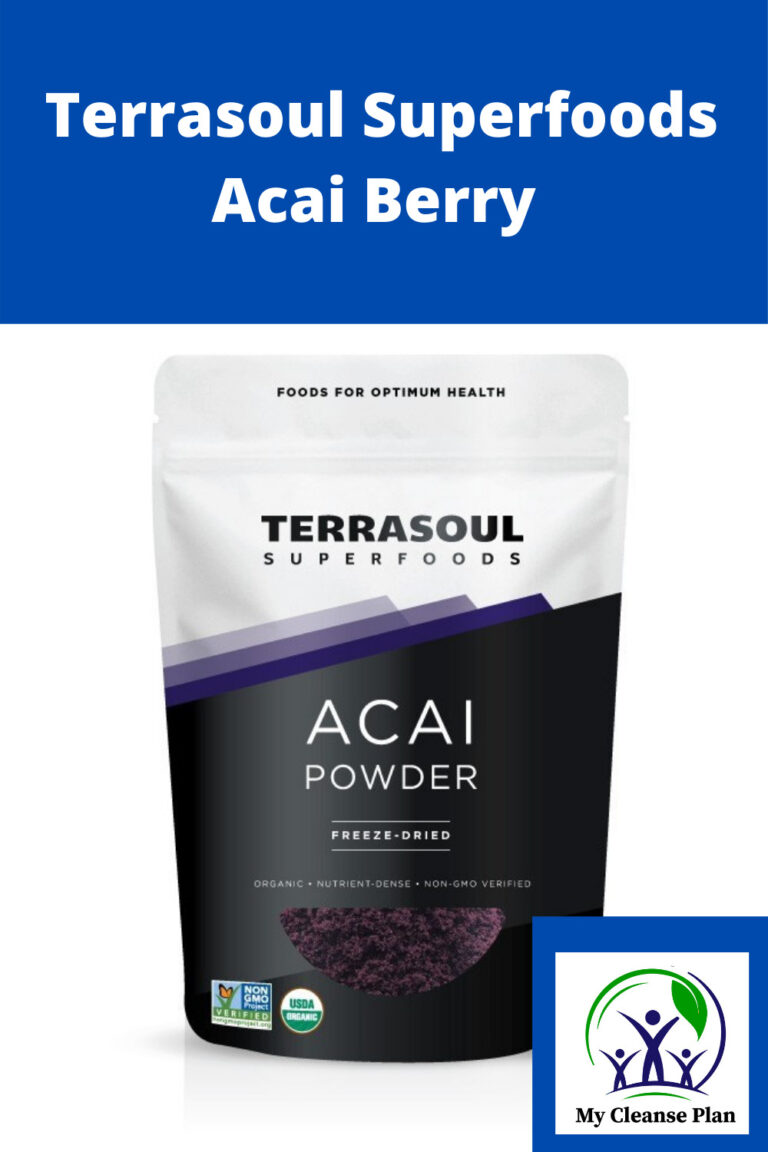What is the Saltwater Flush -How Does it Work?
What is the Saltwater Flush?
Over the past few years, the saltwater flush detox has gained in popularity like many other cleanse-style diets.
The saltwater flush may sound familiar to you because it is also commonly referred to as the “saltwater cleanse” or the “master cleanse,” depending on who you are talking to or where you are reading your information.
For simplicity’s sake, these names are all synonymous and so we are going to simply refer to the practice as the “saltwater flush”.
Like other cleanses, the saltwater flush serves to remove toxins and unwanted waste products from the body. It is thought to be a relatively safe practice.
Currently, there isn’t a ton of science backing up the claims made by advocates of the saltwater flush. That being said, those who have tried it have overwhelmingly positive experiences!
There are many rave reviews to be found on online forums across the internet. The purpose of the salt water flush is to help detox your body by inducing thorough bowel movements.
This flush can help you to cleanse your colon and alleviate the suffering caused by constipation.
Many people believe that the salt water flush can remove old waste materials and even help to expel any parasitic organisms that may be hiding out in your digestive tract!
Other advocates for this cleanse claim that the salt water flush can help with weight loss, diminish abdominal bloating, and improve overall digestion in the body.
How Does it Work?
One of the most common and straightforward saltwater flush recipes involves dissolving one or two teaspoons of non-iodized salt (like sea salt) with approximately a liter of warm water.
For maximum efficacy, it is best to drink the saltwater solution within a five-minute period and to do so first thing in the morning on an empty stomach before eating breakfast. You can also add some freshly squeezed lemon juice to make the beverage more palatable.
The saltwater flush works because the salt in combination with the warm water has a laxative effect on the human body.
The saltwater solution should have a bowel-inducing effect within about 30 minutes of consumption, so make sure you are in close proximity to a bathroom!
It can also cause more urgent bowels throughout the day, so if you decide to try out a salt water flush, make sure to do it on a day when you can access a bathroom regularly, and quickly- just in case!
Related Article: Are Cleanses Safe? Cleansing: The Good, The Bad, The Ugly
Should you Consider Attempting a Saltwater Flush
If you suffer from chronic constipation or if your bowel movements are very irregular, then a saltwater flush might be the perfect solution to your problems!
It is typically an effective way to clear out any blockage in the digestive tract and get you back on the right track of having regular bowel movements.
However, if you also suffer from health problems relating to high blood pressure, digestive issues, heart disease, or kidney disease then this cleanse could very well be more detrimental to your health than it is beneficial.
You should consider an alternative solution to your bowel issues that is safer for you.
If a saltwater flush sounds like something you are interested in trying, it is important to remember that it is not a practice that should be done on a regular basis.
The human body is not equipped to handle high sodium intake repeatedly. While a saltwater flush is a quick, short-term solution to constipation, it is also important to examine the possible undermining causes of the constipation you are experiencing.
By unearthing the root of the problem, you can take steps to improve your digestive health overall and lessen your reliance on a quick fix like the salt water flush.
What is Constipation
Sometimes, experiencing constipation is simply unavoidable, no matter how well you hydrate and fuel your body! In rare random cases of constipation, the saltwater flush can seem like a godsend.
While nearly everyone experiences some level of constipation at some point in their lifetime, chronic constipation is cause for more concern.
Chronic constipation is defined by the Mayo Clinic as “infrequent bowel movements or difficult passage of stools that persists for several weeks or longer.”
You may be experiencing chronic constipation if you have fewer than three bowel movements in a week-long period, if your stools are lumpy and hard, or if you feel as if there is a blockage that prevents you from completing a bowel movement.
If constipation is something that you suffer from on a regular basis, then it is important to determine the underlying cause so that you can make positive, healthy changes to your lifestyle.
Related Article: Is a Cleanse Good For You – One Small Change at a Time
Underlying Causes of Constipation
There are numerous potential causes of constipation, so it can be very difficult to pinpoint which cause is affecting your body specifically. Nearly one in five American adults suffer from frequent constipation!
This is a very high number, and there are a high number of causes to match. Some causes are avoidable and some indicate serious health complications.
Because a number of the causes are on the more serious side, it can be a good idea to visit a doctor to rule out these dangerous causes or even get an early diagnosis.
Some types of cancers, namely abdominal or colon, can lead to chronic constipation. Neurological abnormalities can also be an underlying cause.
Parkinson’s, multiple sclerosis, and strokes are all conditions that have been known to cause issues relating to constipation. Even pregnancy or diabetes can lead to irregularity in bowel movements.
If you are someone who experiences chronic constipation or feels as if you experience it more than “normal, then there are some lifestyle changes you can implement that can help to decrease the frequency that you suffer from constipation.
Related Article: What is the Difference Between a Cleanse and a Detox?
How to Avoid Constipation
If you do not have any serious underlying health issue that is causing your constipation, it may just be a side effect of your typical dietary choices.
Luckily for you, these choices and habits that cause constipation can easily be changed to effectively decrease your constipation issues!
Following healthy eating practices and drinking lots of water each day is the first step toward avoiding chronic constipation.
Foods that are high in fiber like fruits, vegetables, and whole grains help support healthy and regular bowel movements. Increasing your consumption of these healthy foods while also cutting back on things like meat, dairy, and highly processed foods will work in concert to improve your overall digestive health.
Staying active and exercising on a regular basis can also help your body to process foods efficiently and remove waste in a healthy manner.
The Risks Associated with the Saltwater Flush
While most people have not experienced any negative side effects, and agree that the salt water flush is very safe in practice, there are some potential risks to be aware of before giving this cleanse a go.
Like with any decision involving a lifestyle change, is very important to go into the saltwater flush knowing all of the potential pros and cons that way you can be sure that you are making a fully informed, educated decision that is right for you.
While it is most effective to practice the salt water flush on an empty stomach, consuming saltwater without food in your stomach may cause feelings of nausea and even lead to vomiting.
It is essential to be careful not to add too much salt into your detox drink or you can run the risk of experiencing something called ‘sodium overload.’
This means that you are creating an unhealthy electrolyte imbalance in your system that can then lead to high blood pressure. One to two teaspoons of sea salt should be plenty enough to get you the results you need and fully flush out your system Mycleanseplan.
The saltwater flush can also potentially lead to feelings of weakness, numbness, or dizziness if too much salt is ingested.
These are all signs to be aware of, and things you can plan ahead for when deciding when and where to try the salt water flush. The best place to give it a try is in the comfort of your own home when you have a free day.
Related Article: Are Juice Cleanses Good For You
What Can Science Tell Us
Like other detox-style diets, the saltwater flush has only been gaining in popularity in recent years. However, like with many of the other popular fad diets out there today, there is still a lack of solid scientific evidence backing up its claims.
That being said, we do know a lot about salt, and water, and how they affect our bodies!
While the term ‘sodium’ often has a negative connotation when it comes to diet, sea salt is actually chock full of important minerals that can help to keep us healthy.
Drinking too much saltwater will definitely lead to health problems like dehydration. After a while of consuming too much salt, you would even begin to lose more water than you are ingesting.
Nevertheless, using some sea salt for the occasional saltwater flush when necessary, and consuming it in moderation like everything else should not lead to any negative outcomes in terms of your overall health.
While sea salt is high in sodium like table salt, it also provides the body with other minerals like magnesium, calcium, potassium, and many other trace elements that our bodies can greatly benefit from!
Most of the proponents for this cleanse are people that have tried it themselves and experienced positive results. If constipation is something that you are suffering from, give the saltwater flush a try, and make other positive dietary changes to get your health back on the right track!
Explore Also:
Creativehouseblog
Dietsheriff
Gigasecurehome
Thank you for reading and feel free to share this PIN with your friends on Pinterest:





![Cycling Probiotics vs Continuous Use Weighing Benefits and Drawbacks[1]](https://mycleanseplan.com/wp-content/uploads/2025/10/Cycling_Probiotics_vs_Continuous_Use__Weighing_Benefits_and_Drawbacks1-768x448.jpg)
![2026 Gut Health Prediction Series Upcoming Health Trends[1]](https://mycleanseplan.com/wp-content/uploads/2025/11/2026_Gut_Health_Prediction_Series__Upcoming_Health_Trends1-768x448.jpg)



